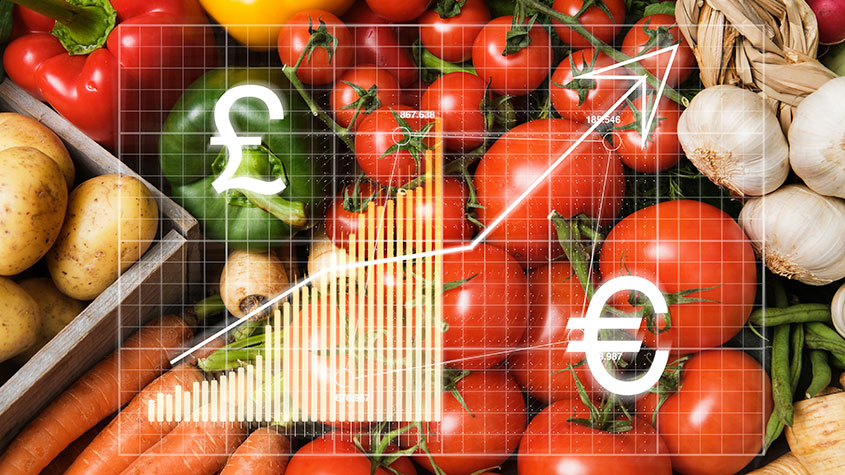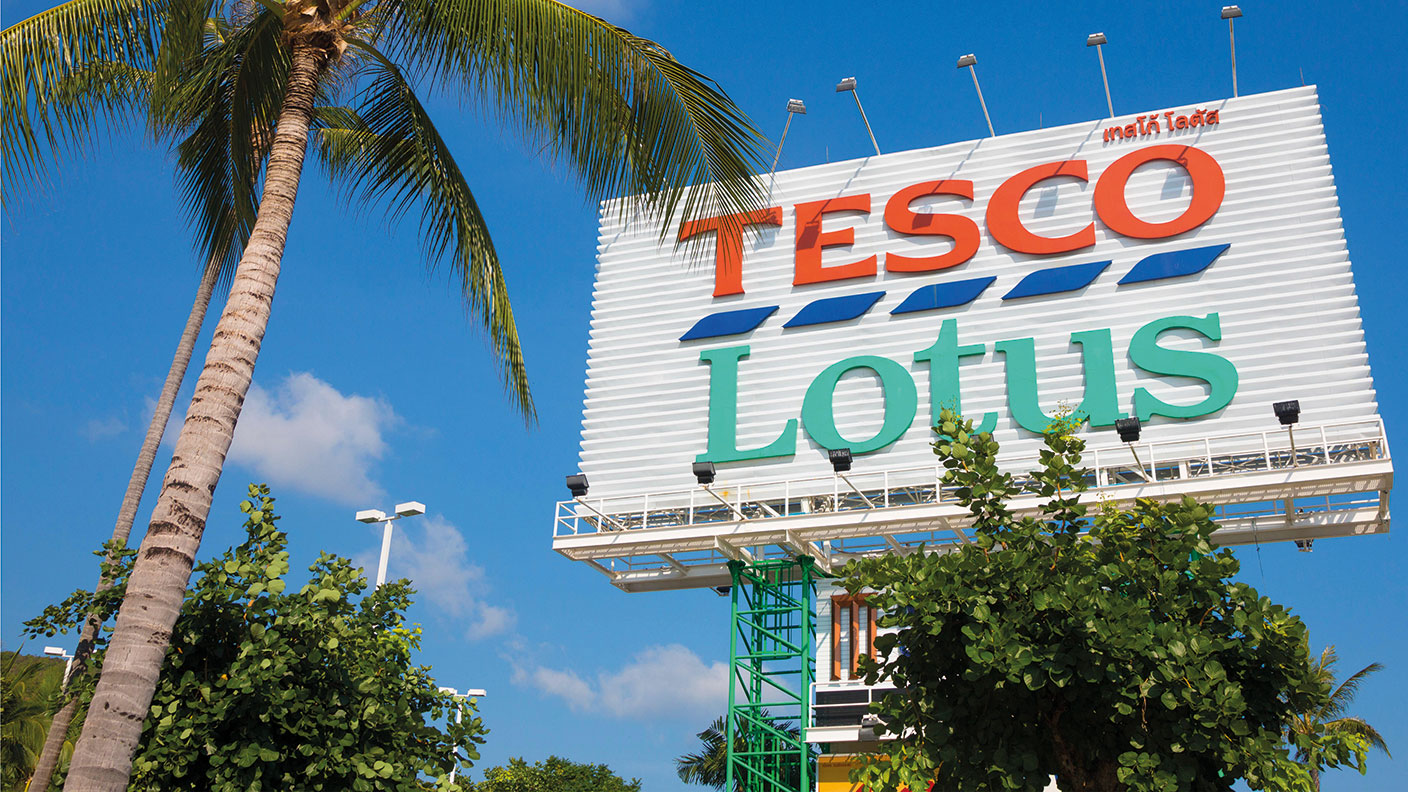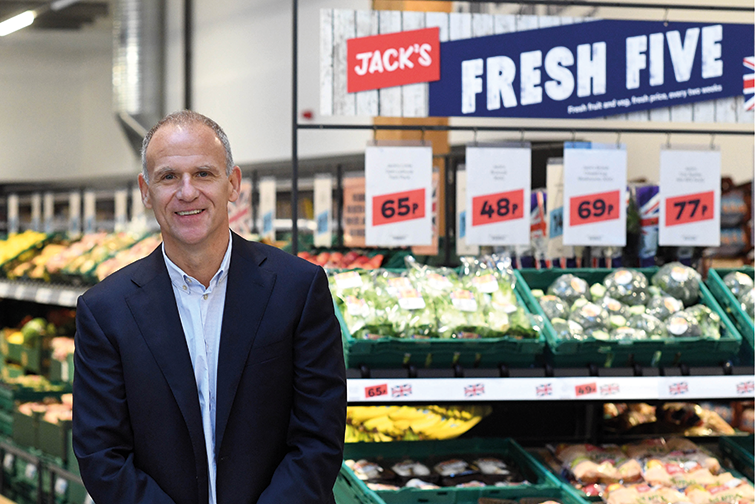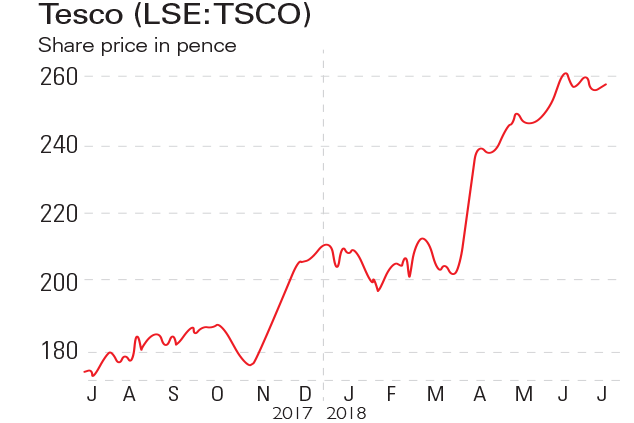Why Britain loves to hate Tesco
Tesco is the largest supermarket in Britain, but critics argues that it abuses its power to exploit farmers and uses unfair practices to stifle competition. Fans say that it helps the poor. What's the truth about Tesco?
Get the latest financial news, insights and expert analysis from our award-winning MoneyWeek team, to help you understand what really matters when it comes to your finances.
You are now subscribed
Your newsletter sign-up was successful
Want to add more newsletters?

Twice daily
MoneyWeek
Get the latest financial news, insights and expert analysis from our award-winning MoneyWeek team, to help you understand what really matters when it comes to your finances.

Four times a week
Look After My Bills
Sign up to our free money-saving newsletter, filled with the latest news and expert advice to help you find the best tips and deals for managing your bills. Start saving today!
How big is Tesco?
Huge. It has close to one third of the £95bn food and household goods retail market. That share is gradually increasing, despite already being about the same as its two nearest rivals put together: J Sainsbury and Asda each have close to 16%. Most people already know the much-quoted statistic that one pound in every eight spent in UK retailers is spent in Tesco. In fact, its position is even stronger than that. In the six months to August, boosted by warm weather and the football World Cup, Tesco took £17.4bn from Britain's shoppers. That's roughly £1 in every £7 spent or £1,117 every second.
Moreover, Tesco's growth (it opens an average of two new UK stores a week) is strongly driven by its expansion into everything from clothing to DVDs and even financial services. Overall, non-food sales now account for fully one-fifth of all sales, with clothing sales up 19% in the last six months and consumer electronics up 36%. Tesco is also extremely profitable. Earlier this month it announced half-year profits of more than £1bn, putting it on track to make record full-year profits of £2.5bn, up from £2.2bn last year.
Why is Tesco's success a problem?
Plenty of people would say that it's not. For starters, Tesco's 1,900 outlets make it the UK's biggest employer (except for the state), providing work for some 250,000 people. Nor is it a problem for Tesco shareholders, who have seen the share price rise by 18% over the past five years. What's more, free-market economists would argue that the high level of consolidation in the UK grocery sector, combined with vicious competition, has been good for consumers. The supermarkets are one of the most successful sectors of the UK economy and should take much of the credit for falling consumer prices.
MoneyWeek
Subscribe to MoneyWeek today and get your first six magazine issues absolutely FREE

Sign up to Money Morning
Don't miss the latest investment and personal finances news, market analysis, plus money-saving tips with our free twice-daily newsletter
Don't miss the latest investment and personal finances news, market analysis, plus money-saving tips with our free twice-daily newsletter
Are prices really lower than they were?
Yes. Government data shows that since 1987 the real price of food is down by a fifth and that of clothes by one half. From this perspective, low-cost supermarkets provide a vital social function. First, they disproportionately help the poor, for whom food bills eat up a relatively big chunk of income. Second, they are at the forefront of forcing manufacturers to improve labelling and in promoting healthy eating in response to changing consumer tastes. And all this without making excessive profits: £2.2bn sounds a lot, but it's just 3p on every pound spent in Tesco.
So what do Tesco's critics say?
That its aggressive pricing ruins the character of town centres by forcing long-established shops out of business, that it abuses its power by demanding crippling terms from suppliers, and that it uses unfair tactics such as land banking' (buying up potential store sites to stop competitors developing them) to stifle competition. Over the past decade the Office of Fair Trading (OFT) has kept an eye on the sector. Twice in the last seven years it has ordered the Competition Commission to investigate. In May, the OFT again asked for a full inquiry on the grounds that much has changed since the earlier one in 2000.
What's changed?
Three main things, says the OFT. First, in the past regulators have treated the supermarket convenience-store sectors as separate markets. But recently, the big four (Tesco, Asda, Sainsbury and William Morrison) have moved into the convenience sector with such a vengeance that the OFT thinks the two-market approach is out of date. It's especially worried about below-cost selling and "price flexing"; that is, having different prices in different stores depending on what local markets can bear. Second, increased consolidation since 2000 means the big players are even more powerful than they were. Third, the OFT says it has found new evidence of unfair practices when it comes to how supermarkets acquire and develop land.
What kinds of unfair practices'?
In general terms, the OFT thinks that the current planning system restricts or distorts competition by acting as a costly barrier to new entrants. If the Commission's inquiry agrees with this view, it implies that root-and-branch reform of the system is needed. More specifically, the OFT is worried that
the supermarkets' so-called land banks are harmful and anti-competitive. Their referral document details some 319 sites owned by the big four an amazing 58% of them by Tesco that have not been developed, and also criticises the use of restrictive covenants' under which supermarkets sell land on condition that the buyer cannot themselves build or allow a supermarket.
Tesco denies that land banking exists and says it merely needs to buy up potential sites a long time in advance for planning purposes. However, if the Commission finds that its practices are anti-competitive, it could be forced to sell those sites.
Tesco's charm offensive
With even David Cameron jumping on the anti-Tesco bandwagon in a speech earlier this year he claimed that its aggressive local pricing risks bringing the whole system of free-market capitalism into disrepute the giant retailer is on a mission to win friends and influence people. In April, chief executive Sir Terry Leahy unveiled a £100m fund to research green sources of energy for its 1,900 stores. In May, he launched a ten-point "good neighbour" initiative a range of community-minded measures, including bespoke TescoExpress store fronts that match their environments, a logistics overhaul to cut deliveries and new biodegradable bags. It remains to be seen whether all this will impress the Competition Commission.
Recommended further reading:
If you're thinking of investing in Tesco or any other supermarket, read Paul Hill's article: leave expensive supermarkets on the shelf. For more on the OFT's investigation, see: Will the latest competition probe hurt supermarkets.
Get the latest financial news, insights and expert analysis from our award-winning MoneyWeek team, to help you understand what really matters when it comes to your finances.
-
 Properties for sale with beautiful kitchens
Properties for sale with beautiful kitchensThe best properties for sale with beautiful kitchens – from a Modernist house moments from the River Thames in Chiswick, to a 19th-century Italian house in Florence
-
 Can US small caps survive the software selloff?
Can US small caps survive the software selloff?US stocks have made their worst start to a year since 1995 relative to a global benchmark. But experts think some sectors of the market are still worth buying.
-
 How to profit from rising food prices: which stocks should you invest in?
How to profit from rising food prices: which stocks should you invest in?Tips Food prices are rising – we look at the stocks to avoid and the one to invest in this sector.
-
 Tesco looks well-placed to ride out the cost of living crisis – investors take note
Tesco looks well-placed to ride out the cost of living crisis – investors take noteAnalysis Surging inflation is bad news for retailers. But supermarket giant Tesco looks better placed to cope than most, says Rupert Hargreaves.
-
 Tesco sells its retail subsidiary in Thailand and Malaysia for £8bn
Tesco sells its retail subsidiary in Thailand and Malaysia for £8bnNews Tesco has agreed to sell its southeast Asian operations to Thai conglomerate Charoen Pokphand for £8.2bn in cash.
-
 Tesco should keep its Asian assets
Tesco should keep its Asian assetsOpinion The £7bn that Tesco could get for its Tesco Lotus business in Asia looks enticing. But holding on to it would be smarter, says Matthew Lynn.
-
 Tesco wields the axe
Tesco wields the axeFeatures Britain’s biggest supermarket is cutting back on staff and fresh food. Will the move prove counterproductive? Matthew Partridge reports.
-
 If you'd invested in: Tesco and Associated British Foods
If you'd invested in: Tesco and Associated British FoodsFeatures Tesco has seen its market value rise almost 50% in a year, while AB Foods has seen shares slide despite a rise in profits.
-
 What's behind Tesco’s alliance with Carrefour?
What's behind Tesco’s alliance with Carrefour?Features Tesco is clubbing together with French rival Carrefour to bulk buy own-label goods in an effort to cut costs. Will it succeed? Ben Judge reports.
-
 Lessons from Tesco’s turnaround
Lessons from Tesco’s turnaroundOpinion Retailers have it tough, but Tesco has shown that it’s still possible to thrive, says Matthew Lynn.